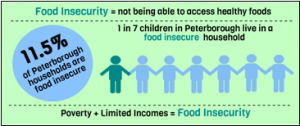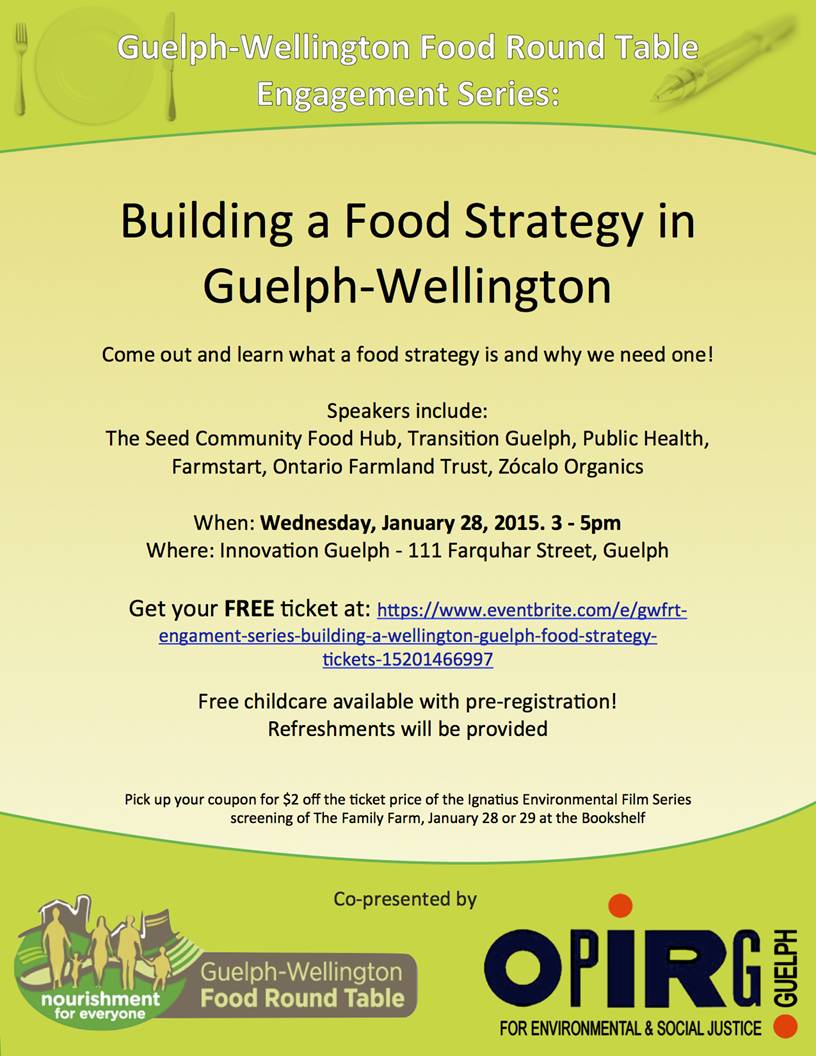To celebrate their 10th Anniversary, the Ontario Farmland Trust has launched a $1 million Farmland Forever fundraising campaign. With this campaign, they will be able to nearly double the amount of farmland under agricultural protection easements. Currently more than 20 farm owners are waiting to donate easements. The Farmland Forever campaign will also give OFT more capacity to support farmland policy development and expand research and education for improved farmland protection across Ontario.
** And from now until December 31st, every donation will be matched dollar for dollar by the Metcalf Foundation!! **
In this season of giving, why not save some land for a future farmer?
LiveWell for low-impact food (LIFE) is a project which aims to contribute to the reduction in greenhouse gas emissions from the EU food supply chain and demonstrate what healthy, sustainable diets could look like for different European countries.
Over the last three years, LiveWell for LIFE has worked with members of the multi-sectoral Network of European Food Stakeholders – which represent key stakeholders from across the EU – to reduce the impact food consumption has on the environment.
‘On our plate today: healthy, sustainable food choices’ is LiveWell’s concluding conference. Here they’ll look at the need for a global food strategy, and the role policymakers and business leaders alike play in encouraging sustainable food consumption.
To learn more about the project, please visit livewellforlife.eu
Watch the entire conference live online.
What is local? Some describe anything within a 50 or 100-kilometre radius as local; others include anything grown in Ontario or made in Canada as local. What was clear at the conference was that foodies want what they want, and business owners can’t afford to ignore them. Buying local is not a trend that is going to disappear.
Be unique. Grow your business as big as you want. Food hubs and sharing ideas and distribution processes are great ways to leverage your growth—as the master of your own destiny you can still remain niche while becoming mainstream. Read more…
“Basically the jury’s still out on how to operationalize it and make it sustainable, even for a nonprofit that’s subsidized,” says Debbie Field, executive director for FoodShare Toronto, the organization that runs the Mobile Good Food Market. “I don’t think that it’s actually working for anybody who’s doing it right now.”
The biggest value of mobile markets, she says, might be in demonstrating that there is a demand for healthy food in even the poorest neighborhoods. “It’s not that low-income people aren’t interested,” Field says. “They will buy the food if we can get it there. What FoodShare is proving is that people will buy this food and what we have to do is figure out logistically how to get it into communities.” Read more…
If you suspect it cost more over the past year to buy groceries and cook even basic healthy meals at home, you’re right, according to new study. The 2014 Food Cost Survey released by the Brant County Health Unit reveals that the cost of eating healthy food for a family of four is now $193.85 a week in Brantford and Brant – or $839.37 out of the monthly budget. That’s an 8% increase over last year’s figure of $179.50 per week, or $777.19 a month. “The reality is that many families in our community can’t afford basic healthy food after paying for housing and other living expenses.” Read more…
La Montañita, a consumer cooperative, believes in the shared benefits of healthy food, sound environmental practices and a strong local economy with results that justify the resources used.
The Co-op is a leader in the local foods movement! We support local farmers through the Food-Shed Project. This initiative helps local farmers and producers get their products into more markets. Over 1,100 local products from 400 local producers make it to small community grocers, restaurants, and commercial kitchens as a result of the Co-op Distribution Center.
We know local, but we call it community. We serve our membership, but we also collaborate with farmers, local food and environment advocates, and educators to build community awareness about the links between food, health and the environment. Read more…


